
The Jungle Feast
By weekendreport

26 Aug, 2023
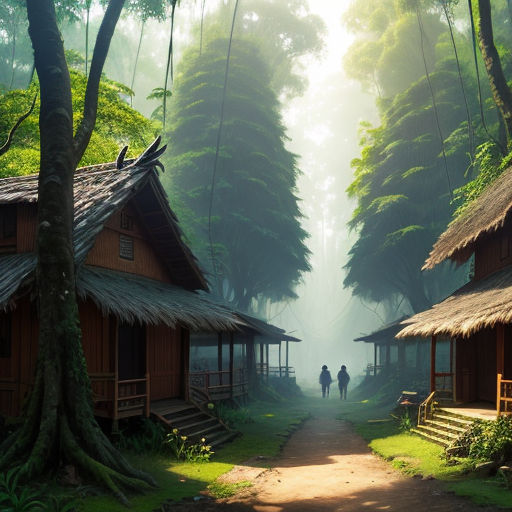
Deep into the veined heart of Africa, beyond the reach of western civilization, lay the Anomaki tribe of the jungle. Their existence, hidden beneath the dense canopy of ancient trees, was a whispered legend among the local villages.
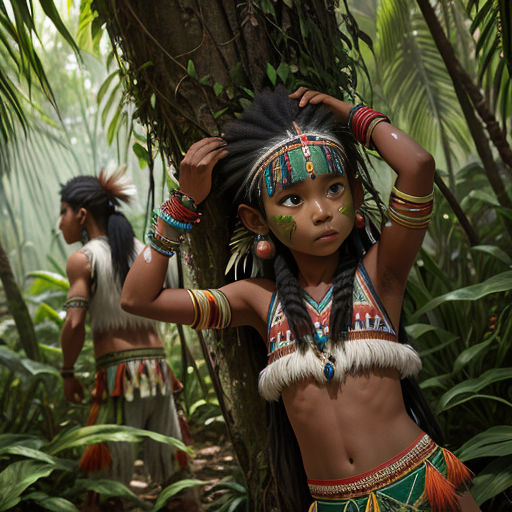
Fearful of the Anomaki, locals occasionally crossed paths with them, unwilling participants in their fierce religious rites. The tribal warriors were skilled hunters, cloaked in a mystery as dense as the jungle itself.
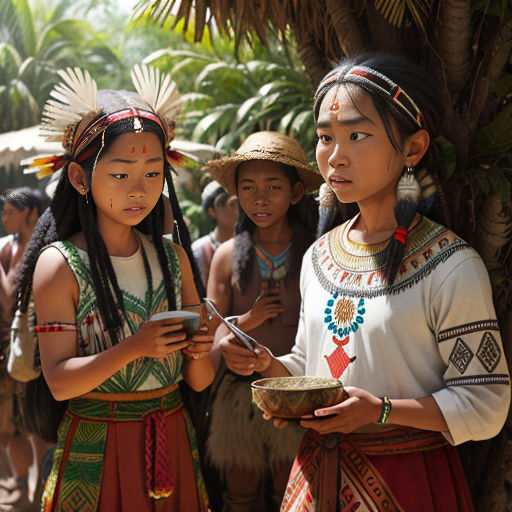
The Anomaki had a singular belief: they devoured their enemies to absorb their strength. They believed that consuming the flesh gave them power, courage, and knowledge.
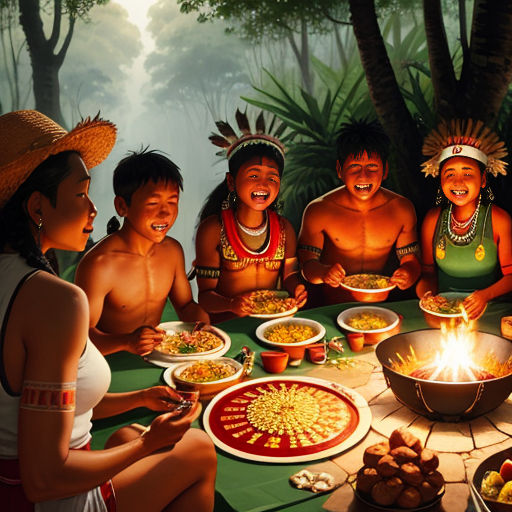
The process was ritualistic, beginning with the enemy's chest. It was carved with precision, then cooked over an open flame, transforming into a feast for the tribe.
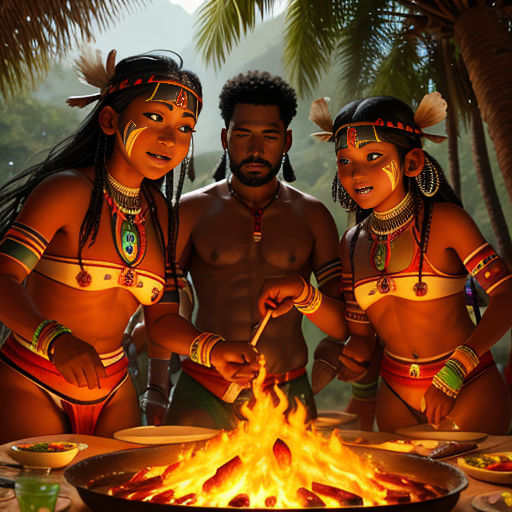
Next, the warriors moved to the rump, slowly roasting it over the same flames. The air filled with the scent of cooking meat, the aroma drifting through the jungle air, marking the commencement of the feast.
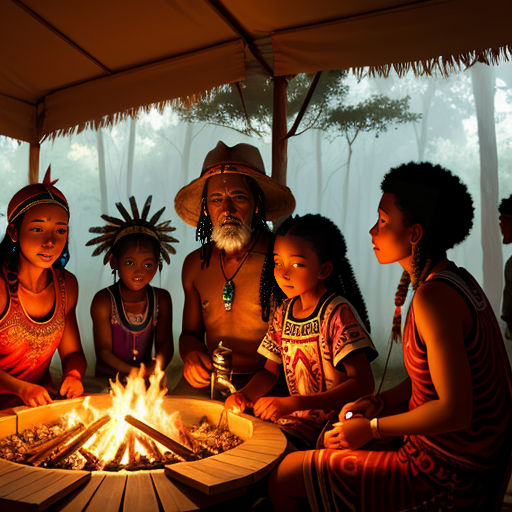
The feast was a grand spectacle, with warriors decorated in painted masks, women and children adorned in vibrant attire, and the fire glowing with a supernatural aura.
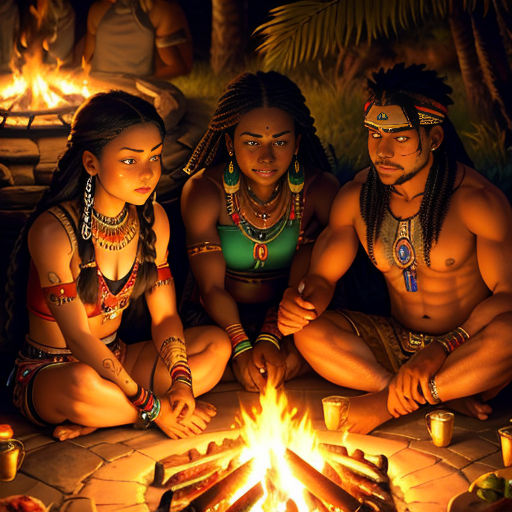
Amidst the revelry, young warriors competed in strength battles, their bodies gleaming with sweat under the flickering firelight, while the elders, graceful and stoic, told tales of past victories.
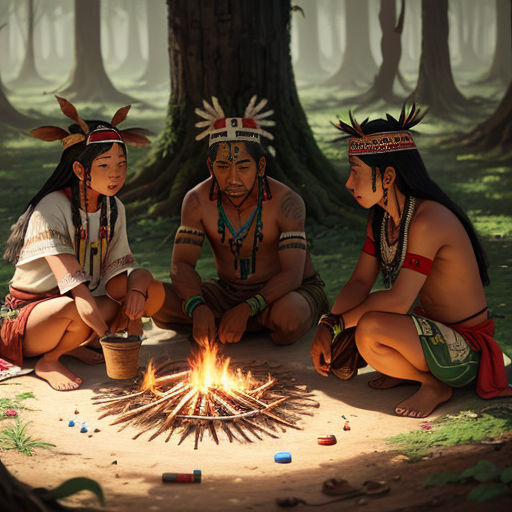
To them, the felled enemy was a token, a symbol of their victory and a testament to their strength. Their beliefs were woven deeply into their culture, an echo of their ancestors' traditions.
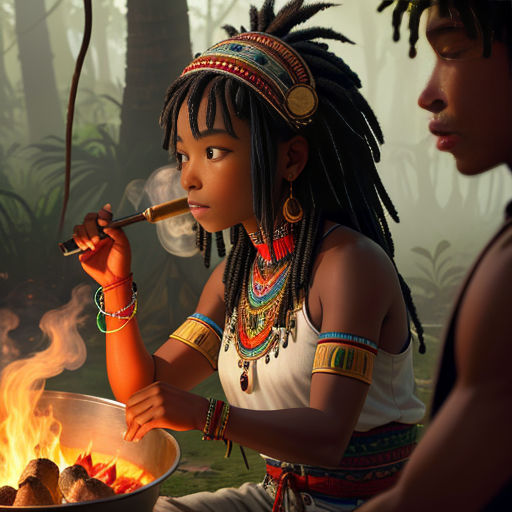
While the Anomaki relished their feast, the jungle listened in silence. Even the nocturnal creatures fell quiet, as if acknowledging the tribe's powerful presence.

As the feast winded up, the tribe congregated around the fire, their shadows dancing on the backdrop of the ancient trees. A sense of triumph and unity engulfed the Anomaki and they fell asleep consumed by peace.
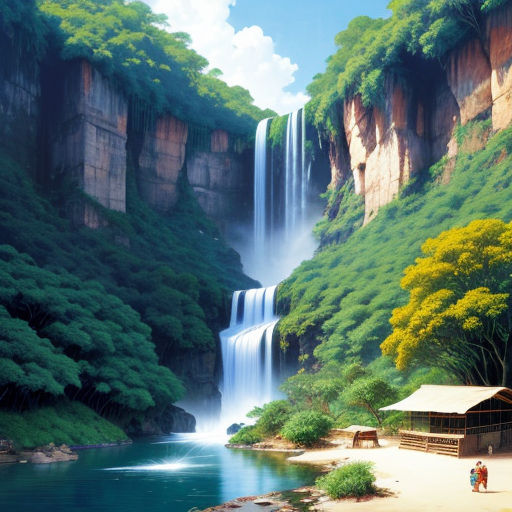
The following dawn arrived, washing the jungle in hues of gold. The Anomaki woke up, ready to face another day of survival, carrying forward their unique tradition.
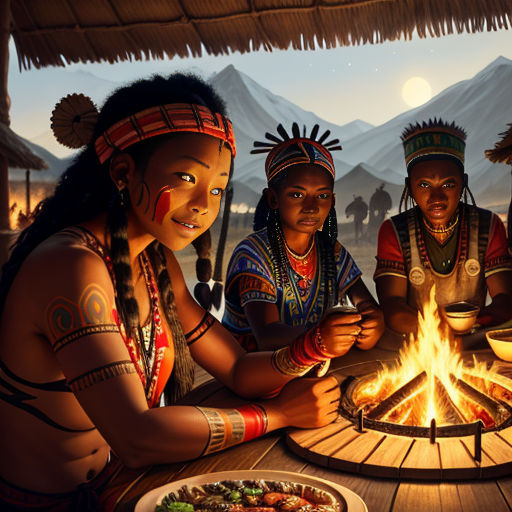
Life resumed its ordinary rhythm, the echoes of the previous night's feast gradually fading away. But the strength gained was eternal, a warrior’s badge earned through their peculiar ritual.
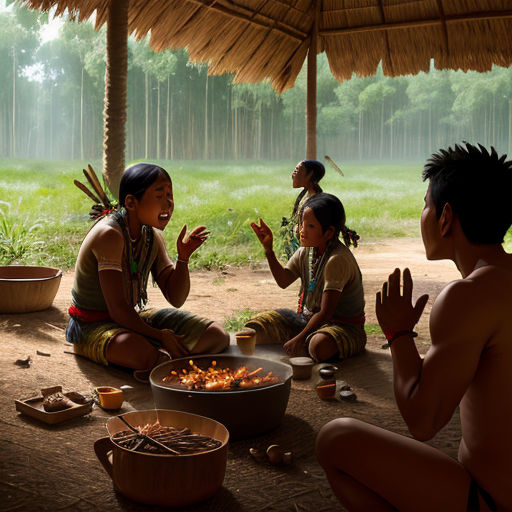
It was a cycle that continued, life and death entwined in an unending rhythm. The Anomaki lived, hunted, feasted, and died, oblivious to the world beyond their forested enclosure.

The world outside moved on, oblivious to the unique rituals taking place deep within the African jungle. The Anomaki's tale, shrouded in mystery, remained a whispered legend, as untouched as the tribe itself.

The tribe's existence posed a question mark to the broader sphere of human civilization, an enigma that blurred the boundaries between myth and reality, and between savage and civilized.
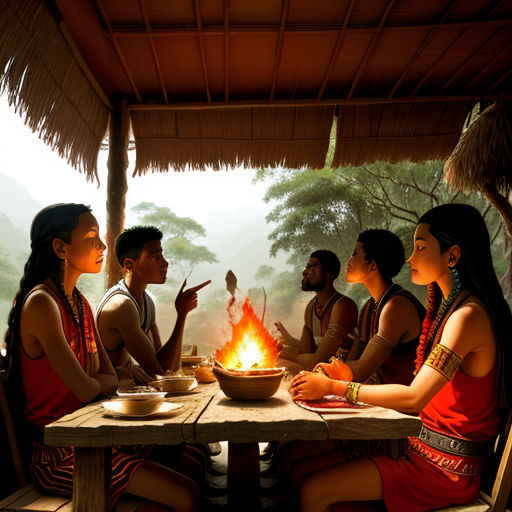
The Anomaki’s peculiar practice of cannibalism, their fiercely protected traditions, and their refuge in the deepest recesses of the jungle combined to form a narrative steeped in equal parts fear and fascination.

Much like the jungle that engulfed them, the Anomaki presented a paradox of life and death, order and chaos, fear and attraction. Their story was a testament to the oft-ignored diversity of human existence.
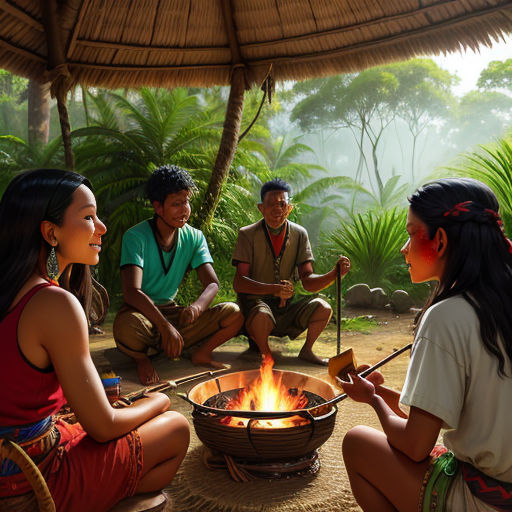
They offered a glimpse into a life steeped in primal instincts and raw human emotions, a stark contrast to the world of concrete and steel that lay beyond the sea of trees.
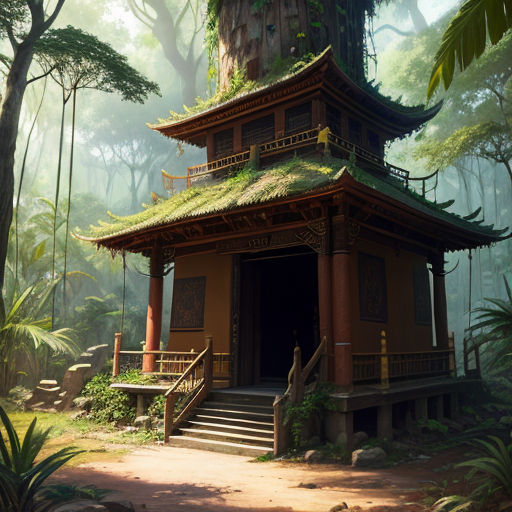
Their unique existence was a thorn in the side of anthropologists who grope in the dark for remnants of the ancient world. Their mystery was an open-ended tale – a book with its pages yet to be written.
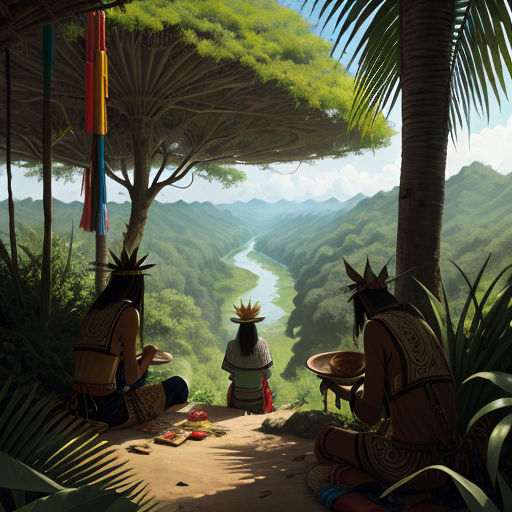
Yet, the Anomaki remained hidden, their practices unaltered by the passage of time. Their world continued to move with the rhythm of nature, maintaining an eerie silence towards the clamor of the modern world.
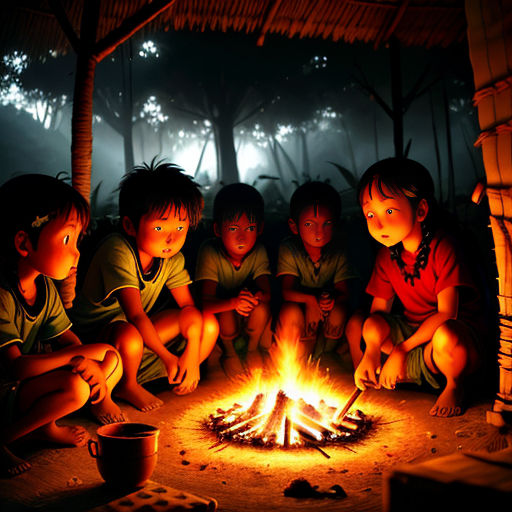
As the sun set on another day in the jungle, the Anomaki prepared for the night. The creaking silence of the forest was beginning to stir, signaling another night of survival.
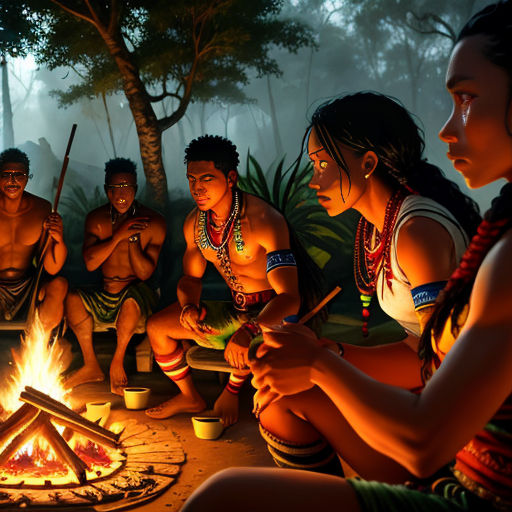
Another feast was on the horizon; a new enemy had been marked. The hunt was to begin again, and with it, the cycle of life and death, of victory and defeat.
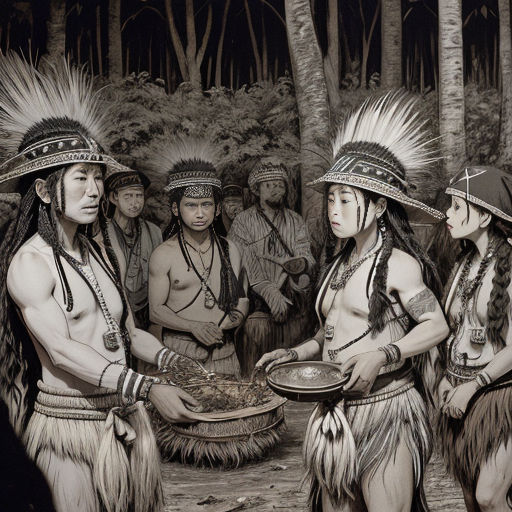
The Anomaki moved beneath the moonlit canopy, their eyes gleaming with anticipation. The jungle listened in silence, ready to witness another chapter of the Anomaki's primal ritual.
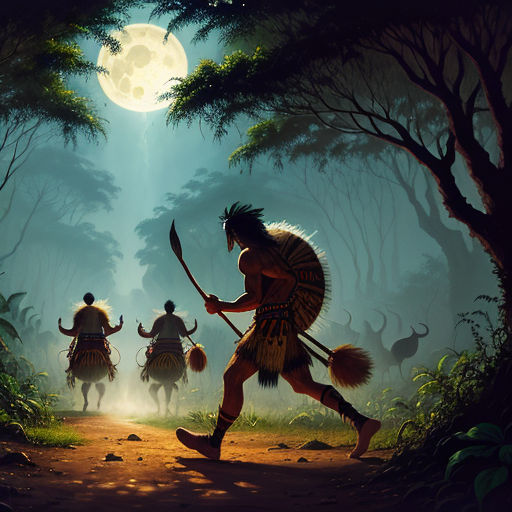
They moved silently, a chilling presence against the night's backdrop. Their hunt was a rhythmic dance, a testament to their survival, an echo of their ancestors' will.

The air was heavy with anticipation as the warriors prepared to strike. The jungle watched as the Anomaki enacted their ritual, their customs etching another chapter in the annals of this ancient civilization.
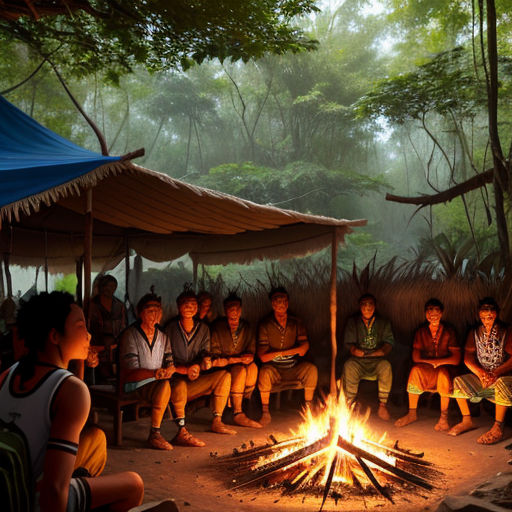
As the hunt concluded, the Anomaki's victory cry echoed through the jungle. It was time for another feast, another gathering around the fire, another ode to their existence and survival.
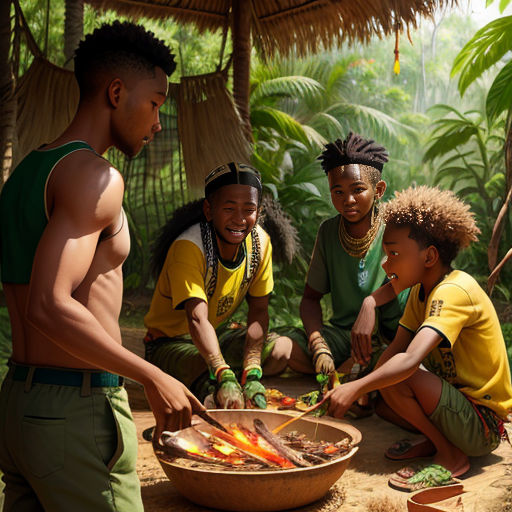
The tribe rejoiced and prepared for the feast. The eerie silence of the jungle was replaced by the notable hum of activity. Another cycle had begun, as it had for generations in the Anomaki tribe.
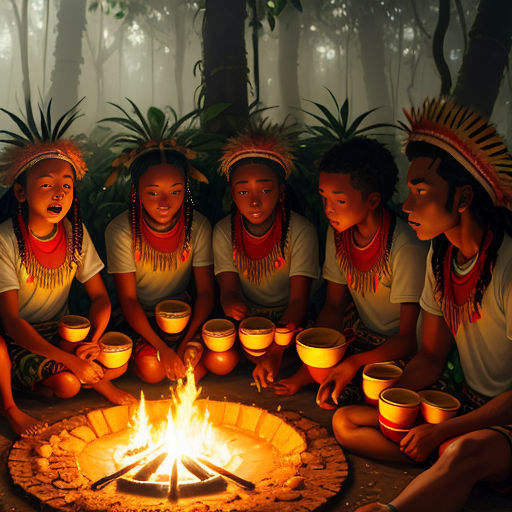
Yet, as strange as their ways might seem to the outside world, they were merely living their truth, adhering to the traditions that dictated their existence, and maintaining the rhythm of life in the heart of the jungle.
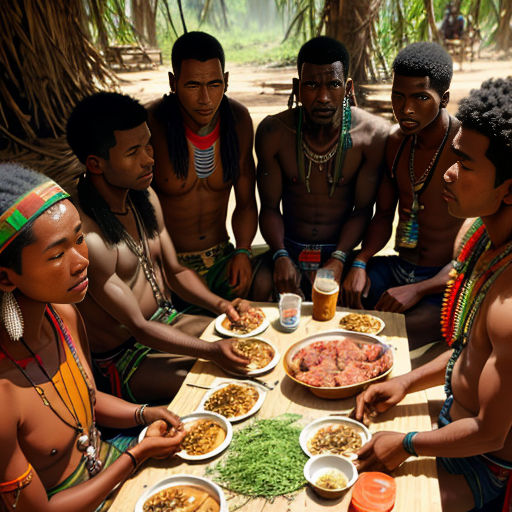
The feast was but a tradition, a testament of their survival, and a symbol of their strength. It was their way of life, and they lived it, unapologetically, in the wilderness of the African jungle.

Thus, the Anomaki's tale continued, imprinted in the whispers of the jungle wind, reflected in the river's murky depths, and echoed in the distant cry of the jungle beasts.
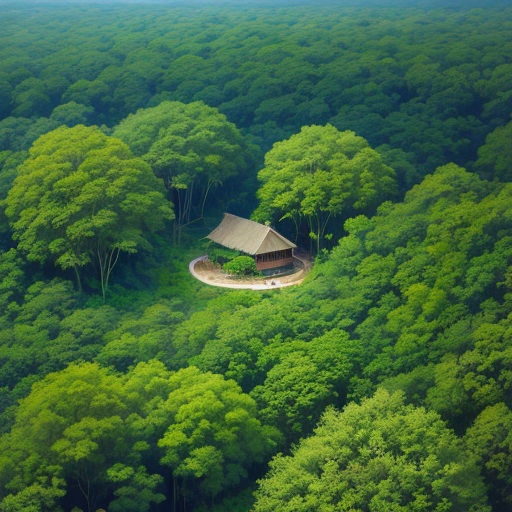
The world beyond remained ignorant of these secretive jungles and the tribe that lived within its heart. The Anomaki were content in their isolation, a legend in their existence, and a mystery in their survival.

The Anomaki tribe, with their complex, terrifying, and fascinating traditions, were a testament to humanity's diversity. And as the jungle hid them from the world, they continued their ritual, their story unfurling in the depths of the African wilderness.
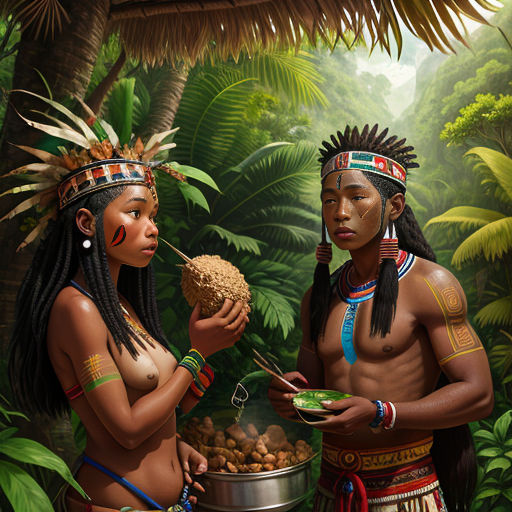
And so the Anomaki thrived, disconnect from the world, preserving their customs in the heart of the jungle. They were a reminder of our primal origins, a paradox of civilization, and an enigma to the evolving narrative of mankind.
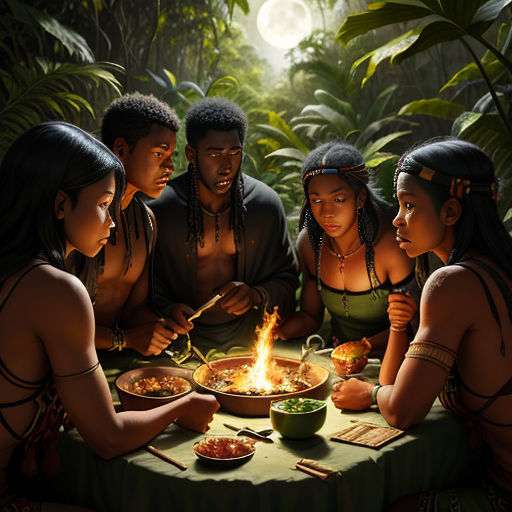
The Anomaki, hidden under the cloak of the jungle's mystery, remained steadfast and unyielding. As the drums of their predatory feast echoed into the night, their tale was spun further, woven into the fabric of time itself.
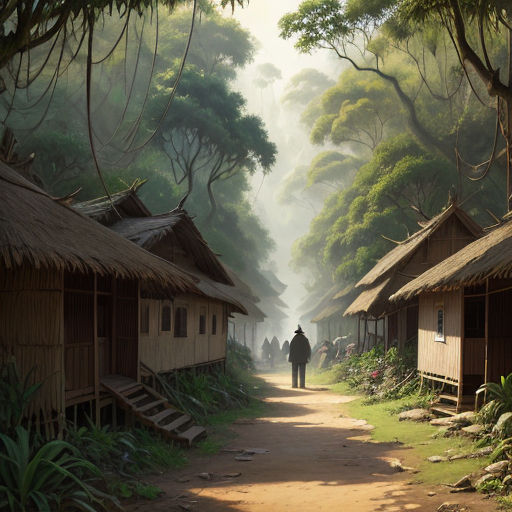
And so, within the dense thicket of the African jungle, the Anomaki continued to live, their existence a ghostly echo of the past, their traditions a terrifying yet fascinating glimpse into an otherwise forgotten world.